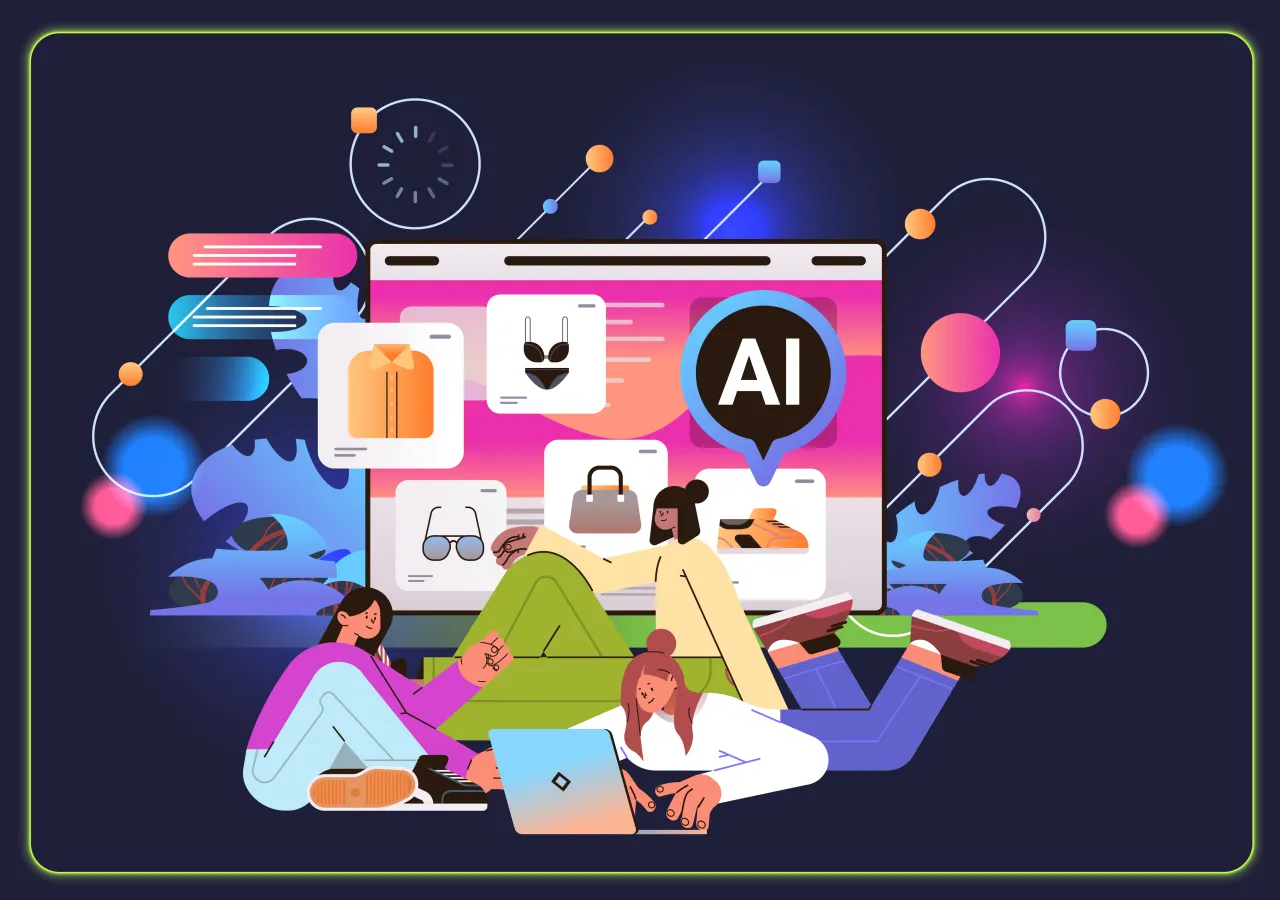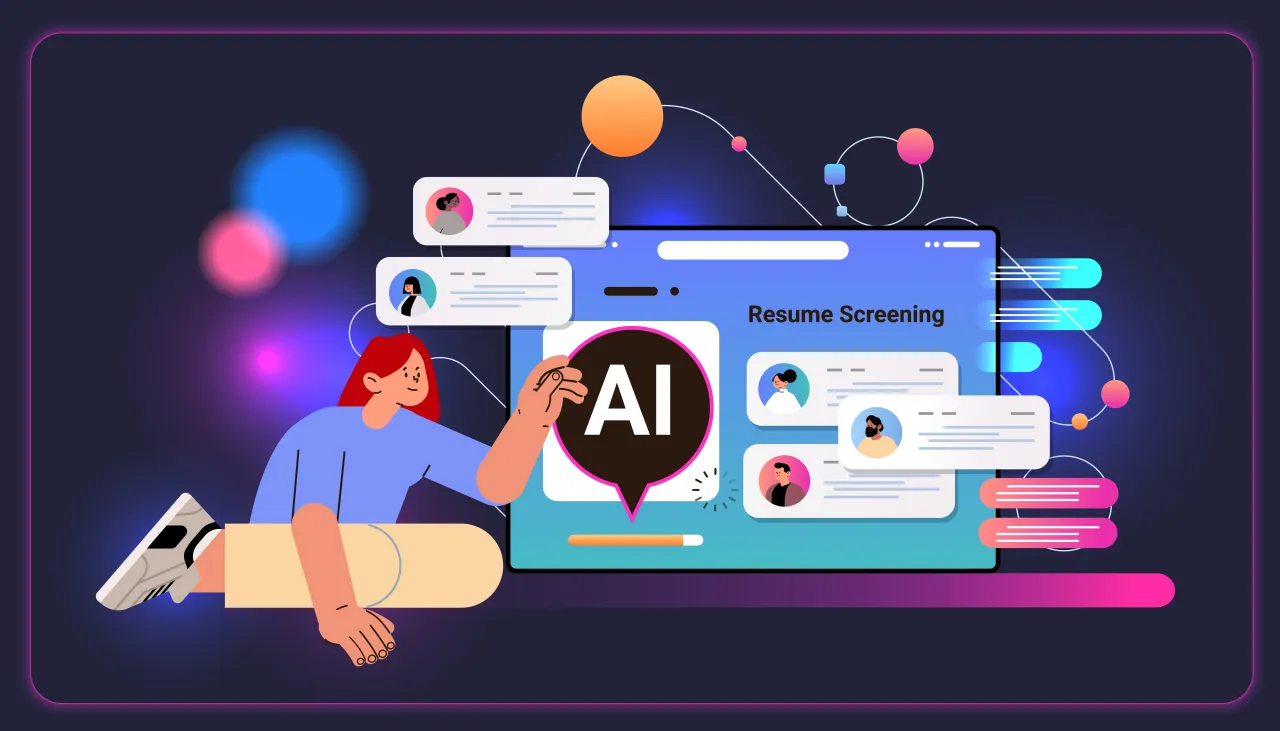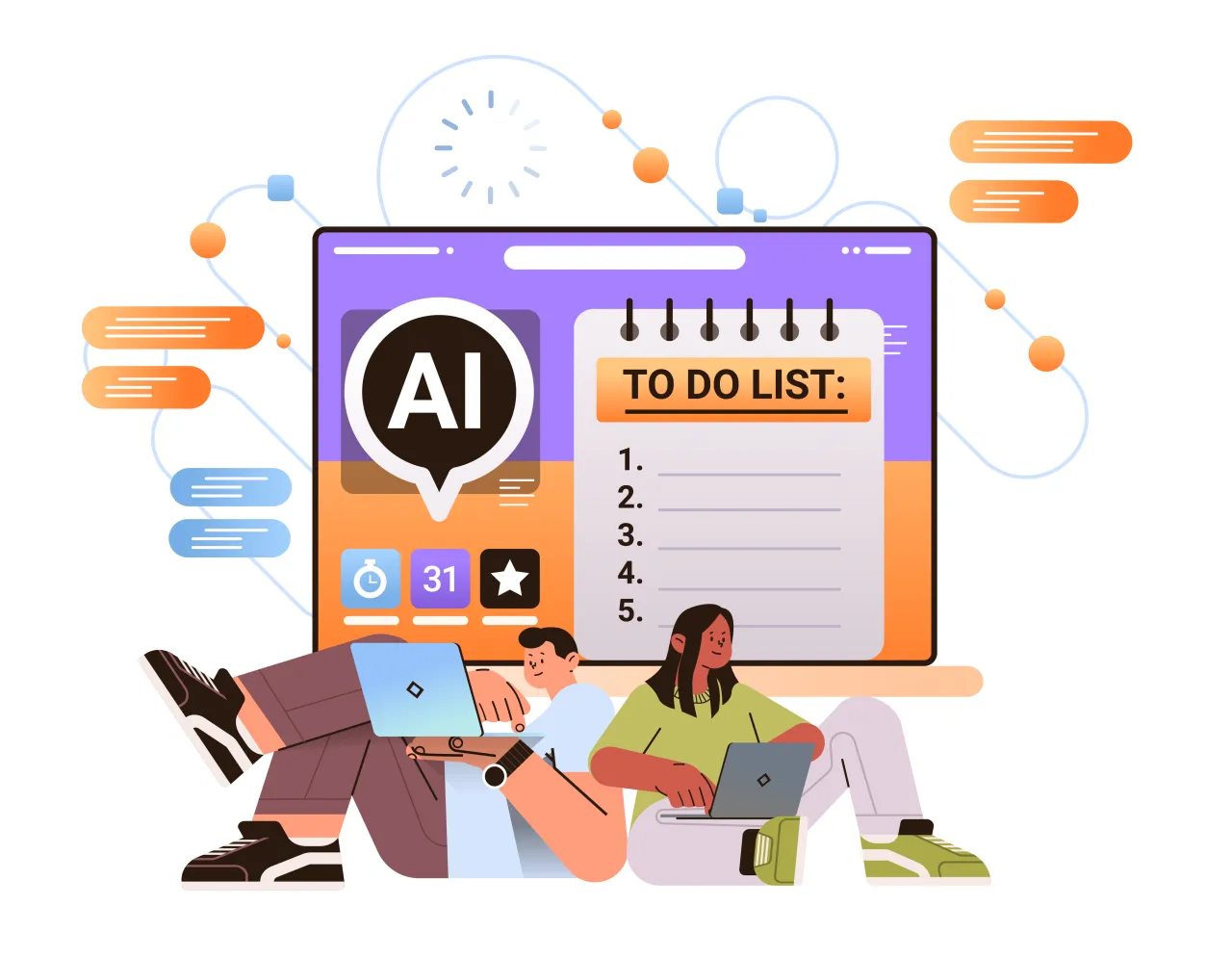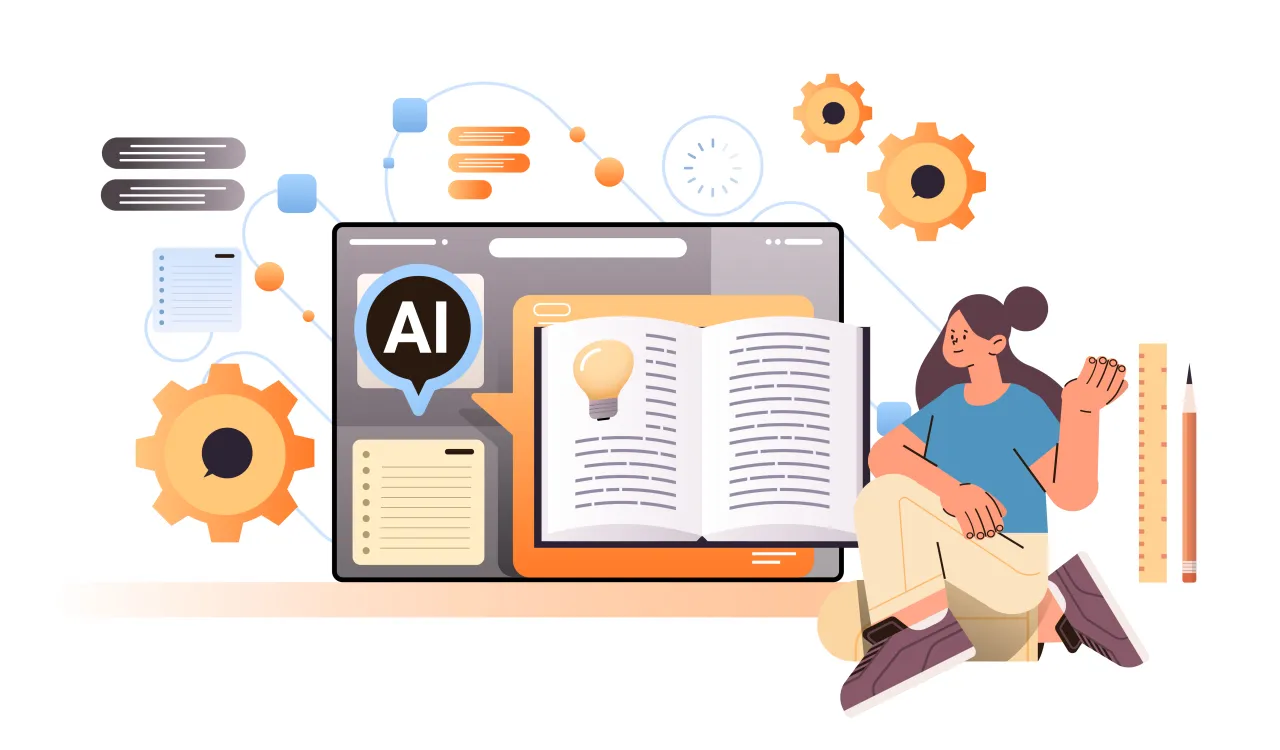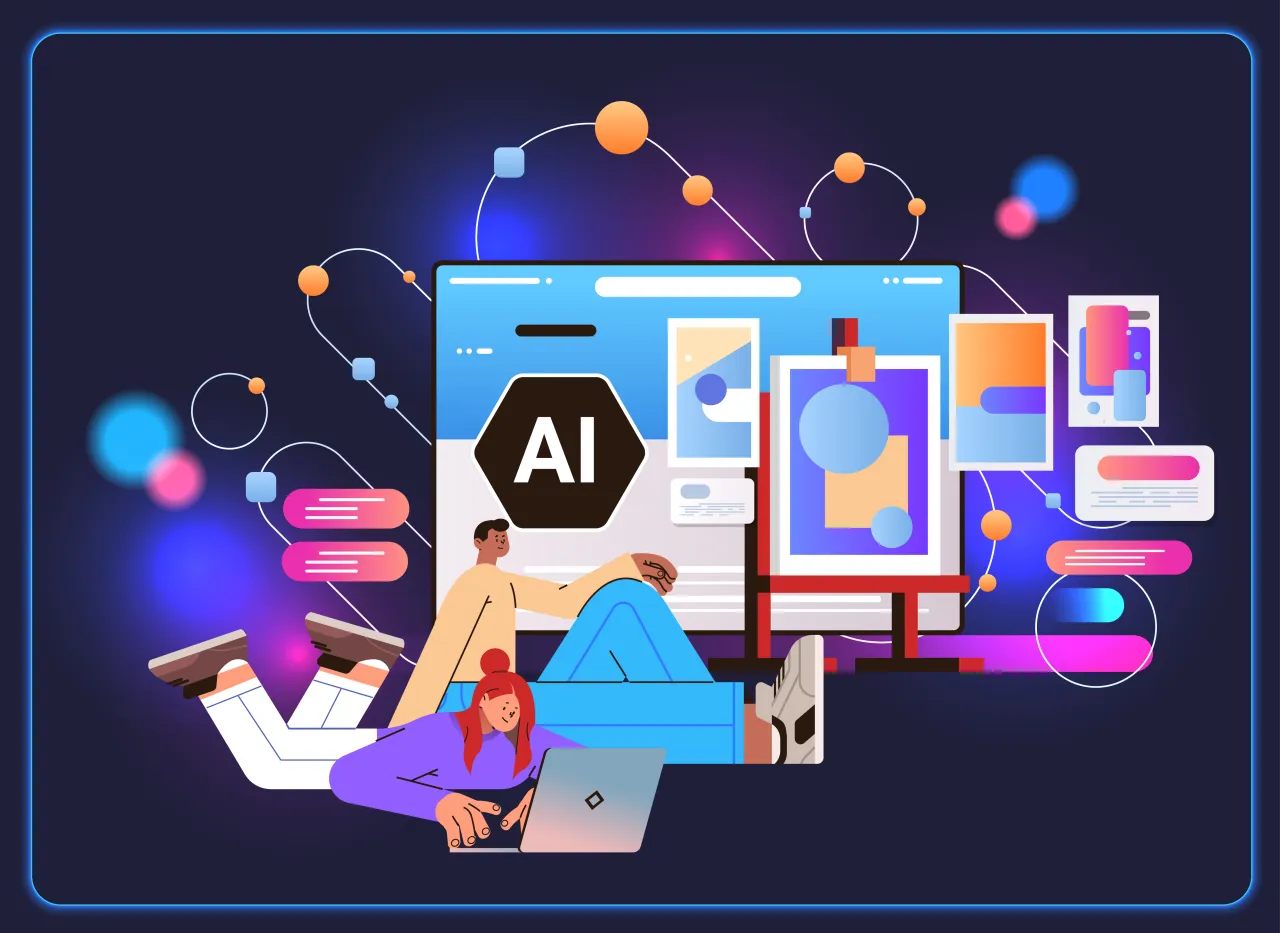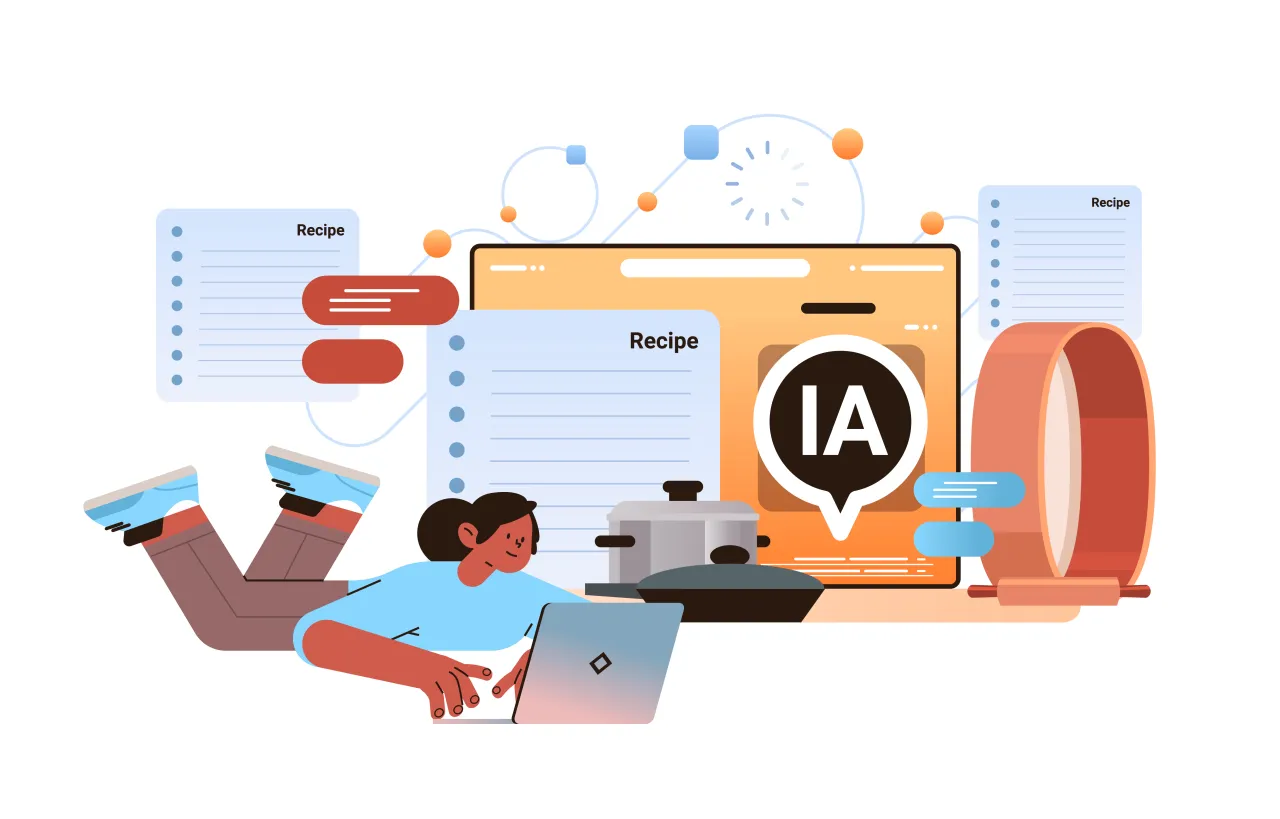The Role of Artificial Intelligence in Business in 2025
The development of artificial intelligence technology has significantly influenced all spheres of human life, with no exceptions in business and marketing. According to Forbes, in 2024, the most common ways to implement AI in business are customer service automation (56%), raising the level of a company’s cybersecurity (51%), and personal assistance for employees and managers (47%).
However, AI in the business world is expected to reveal its potential even more. Most tech companies are still investing money in building their custom AI tools, as well as widening the horizons of how solutions like ChatGPT can be used for various niches and business tasks, like accounting, product personalization, and creative marketing. For example, the recent investment round for OpenAI is already exceeding $6.6 billion.
In this article, we’ll give you a general overview of what you need to know about artificial intelligence in business, with some tips on the most promising ways for your company to leverage the technology immediately.
How AI is transforming business
Artificial intelligence is widely used for multiple tasks associated with business, including data-driven decision-making, task automation, and marketing content production. Regarding AI in business operations, the technology is often utilized to streamline complicated business processes by analyzing vast datasets with accurate and automated analysis of vast databases. For instance, an AI-powered tool can help you identify inefficiencies at early stages and suggest improvements that can be implemented with fewer resources.
AI also reduces human errors in business areas that cause the most losses, such as supply chain management, demand predictions, budget optimization, inventory monitoring, etc. That’s why over 47% of business leaders are considering experiments with AI solutions instead of having more employees on their teams.
However, the advancement of AI technologies is not necessarily bad for the labor market. Nearly 60% of employees admit they use AI-powered tools for work daily, and others use the technology to study and improve the quality of their work in the future. In particular, technology revolutionized how support teams approach client services and helped sales managers improve their offers and make them more client-oriented. The overall result for businesses manifested itself in the form of a higher customer satisfaction rate, more purchases, and client loyalty.
By 2030, AI is expected to contribute over $15.7 trillion to the global market. The technology will be most adopted in key sectors such as financial services, healthcare, retail, and manufacturing. Explore our article on 20+ AI Startup Ideas and Tips to Start a Business In 2025 to learn more about what opportunities you can gain by exploring AI-driven solutions.
Artificial intelligence in companies: owners’ concerns
When did AI become popular? To answer this question, you need to go back in history for at least 70 years, when the term “artificial intelligence” was coined during the 1956 Dartmouth Conference.
The recent wave of interest in technology has been associated with the Deep Learning revolution in the 2010s. At that time, several breakthroughs in neural networks brought the term back to use. Machine learning became possible as computer capacity grew, enabling technologies that study large databases quickly. The mass consumer application of AI started after 2015, and since 2020, we can speak about the modern AI era with generative AI technology becoming accessible to individual creatives and businesses.
If you are interested in how to implement AI in business, consider that doing so means you also need to deal with widespread concerns:
#1 Data security & privacy issues
Since AI needs a significant amount of data to be efficient, there are always questions about whether all information processed at the learning stage comes from legal sources and was not stolen.
#2 Issues with AI tool integration
If you have already tried to find an answer to how to use AI in business, you probably know that proper AI incorporation is sometimes complex, slow, and costly. You might need a dedicated team to ensure the AI is not modifying your databases or workflow algorithms, causing disruptions in your corporate operations.
#3 The “black box” problem
When it comes to AI, its models usually work as “black boxes”, which means you can’t study their process of making decisions or working with data. The only thing you can do is improve or change AI algorithms—which is often about significant investments and time. This lack of transparency makes AI-driven products hard to sell or fix quickly.
#4 Ethical Consideration
The global adoption of AI technology has raised numerous ethical questions about job displacement, AI-powered tools, decision-making accountability, and the legal regulation of content produced by generative AI.
To address these challenges, you need a strategic approach, including investing in talent development inside your company, tracking what data your AI tool uses, and fostering a corporate culture that embraces technological change yet understands the long-term consequences of using AI in your particular area.
Here’s a good example of how content production can become cheaper for your company without legal threats or ethical actions toward human artists: The Benefits of Using Licensed AI Content for Brand Image.
How to overcome the key challenges associated with artificial intelligence solutions
How will AI affect business in the future? This question is most popular among entrepreneurs who are willing to maintain fair market competition and are concerned about the ethical threats of using AI to resolve their tasks. However, they also face numerous challenges experimenting with artificial intelligence solutions in the early stages. Let’s take a look at some of the most critical issues:
Data quality or availability
Type: technical challenge
AI needs large, high-quality datasets to study and be able to operate as expected. If you use biased, poor, or low-quality data for machine learning, you can’t rely on solutions offered by your AI tool.
What to do. The most obvious answer is to build a robust data-cleaning pipeline and choose data consciously. You can also try to fill the knowledge gaps by using synthetic (generated but verified) data for learning—partner with trustworthy companies to get the legal databases you need.
Ethical and bias concerns
Type: technical challenge
AI technology does not always understand the difference between scientific facts, biased opinions, and information which is half-true. If your tools were taught using such information, it might integrate these data into its algorithms and then continue producing information that is not objective.
What to do. Start with audits of your AI systems and algorithms for bias and false facts in manual mode. Another idea is to give your AI as much information as possible to help it accumulate more information about specific issues and get multiple perspectives. You can also work on ethical AI guidelines for your team if you use generative AI often.
High costs of development & deployment
Type: business challenge
Creating, training, and deploying custom AI solutions from scratch requires a lot of resources. Moreover, such tasks require a team with advanced machine learning and big data skills. This makes custom-made AI solutions unaffordable for small businesses.
What to do. The best solution is to apply ready-made solutions, such as AI Image Generator by Depositphotos or our bespoke solution for businesses of all sizes—API suite. Both offer AI-as-a-Service, help reduce business maintenance costs, and quickly improve your services or communication.
Regulatory & compliance risks
Type: business challenge
Generative AI tools are often part of chatbot artificial intelligence, which is the most widespread area of AI tech. At the same time, AI that learns from third-party data and zero-hand data received through interactions with actual business customers continues to learn. This may violate regulations around data privacy, such as GDPR and CCPA, and create risks for your company.
What to do. The main rule is to stay updated on industry regulations that are valid in regions where your business operates. The second rule is to develop a privacy policy that prevents data from leaking or remaining stored without owner consent.
AI trends and the business opportunities they open
There are numerous pros of AI for business, and even more are still to come. For instance, generative AI revolutionizes how people and companies create content, personalize their offers and products, and automate mundane tasks. Small language models are used in finance and healthcare to improve client services and make better predictions, avoiding human errors and subjectivity. But that’s only the beginning.
Here is a list of opportunities that modern businesses receive from following recent AI trends:
- Personalizing client experiences by using multimodal AI models (text, image, and video);
- Taking product and business security to a new level with AI-driven systems for behavior analysis and digital vision;
- Product design digitalization and 3D models are becoming accessible and affordable, even for small brands, and enabling them to improve prototypes at early stages;
- Early disease detection in healthcare that becomes possible with AI-analyzed medical imaging;
- Automated treatment plan personalization based on medical datasets and more opportunities for rare disease research;
- In financial services, predictive AI helps institutions manage investment risks and craft better strategies for their clients;
- Supply chain optimization with AI that supports source-minimizing manufactures;
- Сlient-tailored ads generated cost-effectively with tools like AI Image Generator and AI Art Generator.
In 2025, AI trends will make businesses more budget-effective and open perspectives for new, creative business models and services. To ensure your tech adoption will go smoothly, check out the following article: What Is AI Analytics and How Does It Fuel Smarter Business Decisions?
What is the market impact of using AI in business?
As with AI in business operations, technology is reshaping the global market, as well as niche, local, or specific ones. Depending on your company area, you can feel those changes more or less. For example, financial technologies and banking, rail, advertising, and healthcare are among industries where the adoption of AI is high and brings significant benefits right away. On the contrary, other industries, like artisanal crafts, emotional support services, politics, and advocacy, are less influenced by the development of AI.
Discover how artificial intelligence in business impacts current markets:
General economic growth
AI helps companies automate tasks and reduce spending, allocating more money for further development investments and dedicating more time to creative tasks. As a result, this increased business creativity generates capital that contributes to global economic growth.
The birth of new business models
AI-as-a-service (AIaaS) is a new economic area estimated at $25 billion as a standalone market. However, it’s a tiny sign of the changes we will face in upcoming years. Startups will more often leverage AI technology and generate new solutions for business optimization. API suite by Depositphotos is the perfect example of an innovative solution like this.
Enhancing customer experience
AI enables businesses to offer clients more personalized products and services they like and need. Moreover, it provides affordable tools to customize one’s interface and make it handy for various customers. This leads to more sales and profit planning.
Job market transformations
Since AI tools outsource some routine tasks in the corporate workflow, we might see a significant transformation in business roles and corporate structure in the upcoming months. In particular, there will be a growing demand for employees skilled in AI implementation and machine learning, and those who can efficiently use AI-driven tools for content creation and analytics.
Increased competition
AI helps companies evolve faster and become more and more innovative. That’s why it is essential for businesses to adopt the technology faster than their competitors, and look for ways to empower their employees with tools to become more creative and resource-efficient.
More ideas on how to boost your business or project with AI can be found here—How AI Image Generation is Changing Content Production for Businesses: 7 Striking Cases.
Final thoughts. Start with AI in business operations
It’s hard to overestimate the importance of AI in the business world. The technology is still evolving; however, the opportunities they provide businesses—including repetitive task automation, improving customer experiences, taking creativity to a new level, and lowering costs needed for high-quality cost production—are already enough to say AI is a major technology to fuel business growth.
At the same time, AI in business operations and other areas is closely connected with numerous technical, business, ethical, and financial challenges.
If you are concerned about building your AI tool or whether your databases are legal and verified, we recommend starting your AI-for-business story using ready-made and custom solutions by Depositphotos, like AI Image Generator. A great bonus for you today: unlimited AI generations included in any plan!
More insights on AI in business and marketing:
How to Boost Your Holiday Marketing Campaigns with AI
How to Improve a Client’s Shopping Experience with Image AI
AI & Creativity: How Fuckup Nights Limassol Use Generative Tools to Craft Memorable Experiences
Creative Design Trends 2025: From Wabi Sabi to AI-fueled Art
